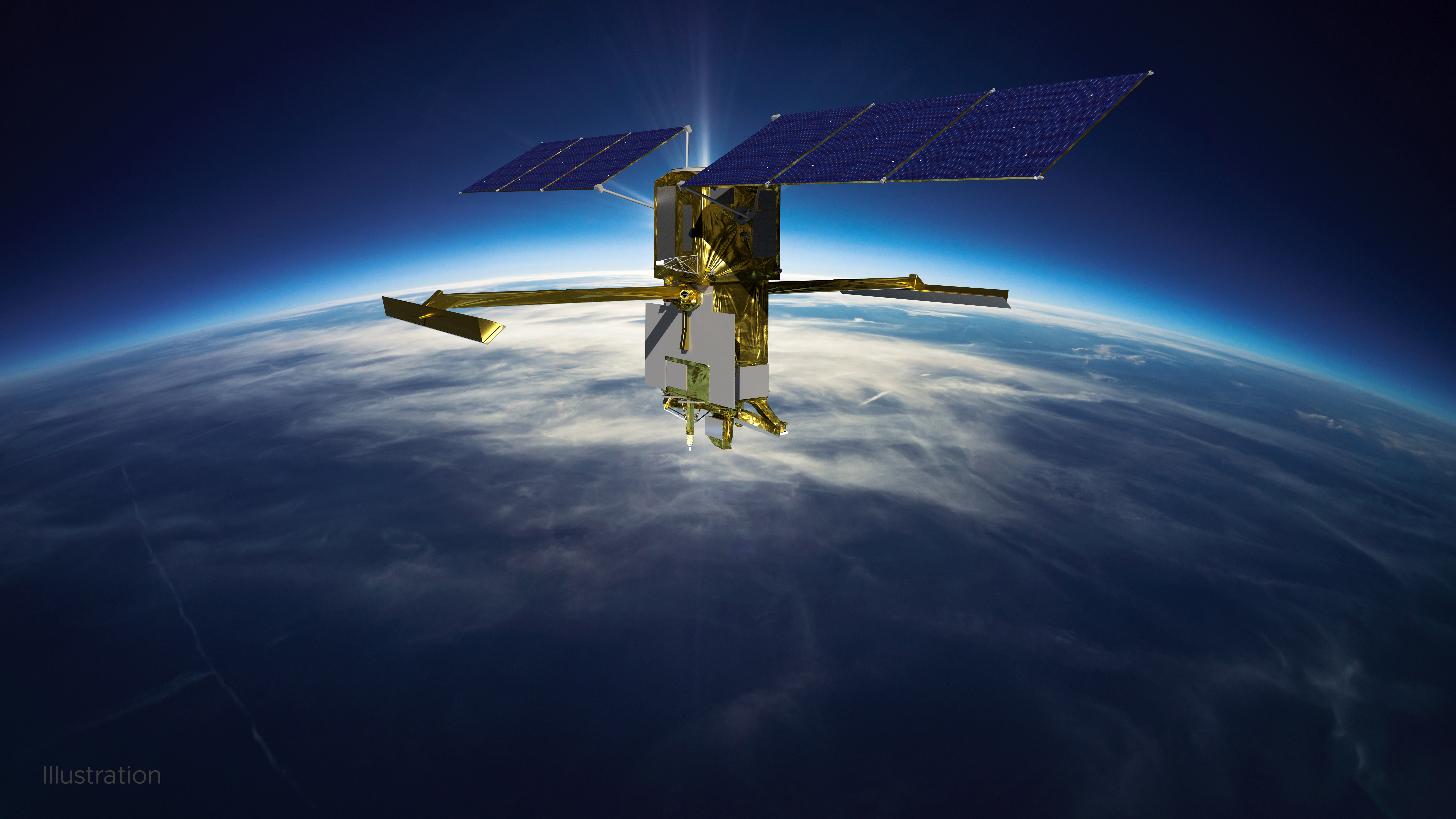
A multi-agency mission seeking to map Earth's water in incredible detail is back on track with commissioning following an instrument issue.
NASA and the French space agency (CNES) found a solution to turn on the Surface Water and Ocean Topography (SWOT) satellite's main science instrument. The instrument, called KARIN (Ka-band Radar Interferometer), shut down suddenly in late January.
The team elected to use a backup power unit to get KARIN working, NASA said in a Friday (March 17) update. "The backup unit was chosen to expedite the restoration of operations and to minimize overall risk to the mission," officials wrote in a blog post.
NASA officials did not disclose a cause for the issue for the instrument, which is the keystone sensor behind SWOT's mission to map surface water to see how climate change affects Earth's water levels.
Related: Climate change: Causes and effects
KARIN is a system of two antennas spaced about 33 feet (10 meters) apart, which is equivalent to half the length of a tennis court. It is designed to generate radar pulses from one of the antennas and then to receive signals with the two antennas working together.
SWOT is expected to begin science operations in July, NASA officials confirmed on Friday, which is about on track with original estimates.
SWOT launched from Vandenberg Space Force Base in California on Dec. 16, 2022 aboard a SpaceX Falcon 9 rocket. Once ready, the multi-agency mission will assess and monitor global water levels to better learn how carbon dioxide, a greenhouse gas, influences rising water influenced by global warming.
The mission will scrutinize 1.3 million miles (2.1 million km) of rivers, along with coastlines and lakes. NASA will also make the information publicly available and provide tools for communities to track their own water levels locally.
Elizabeth Howell is the co-author of "Why Am I Taller?" (ECW Press, 2022; with Canadian astronaut Dave Williams), a book about space medicine. Follow her on Twitter @howellspace. Follow us on Twitter @Spacedotcom or Facebook.







